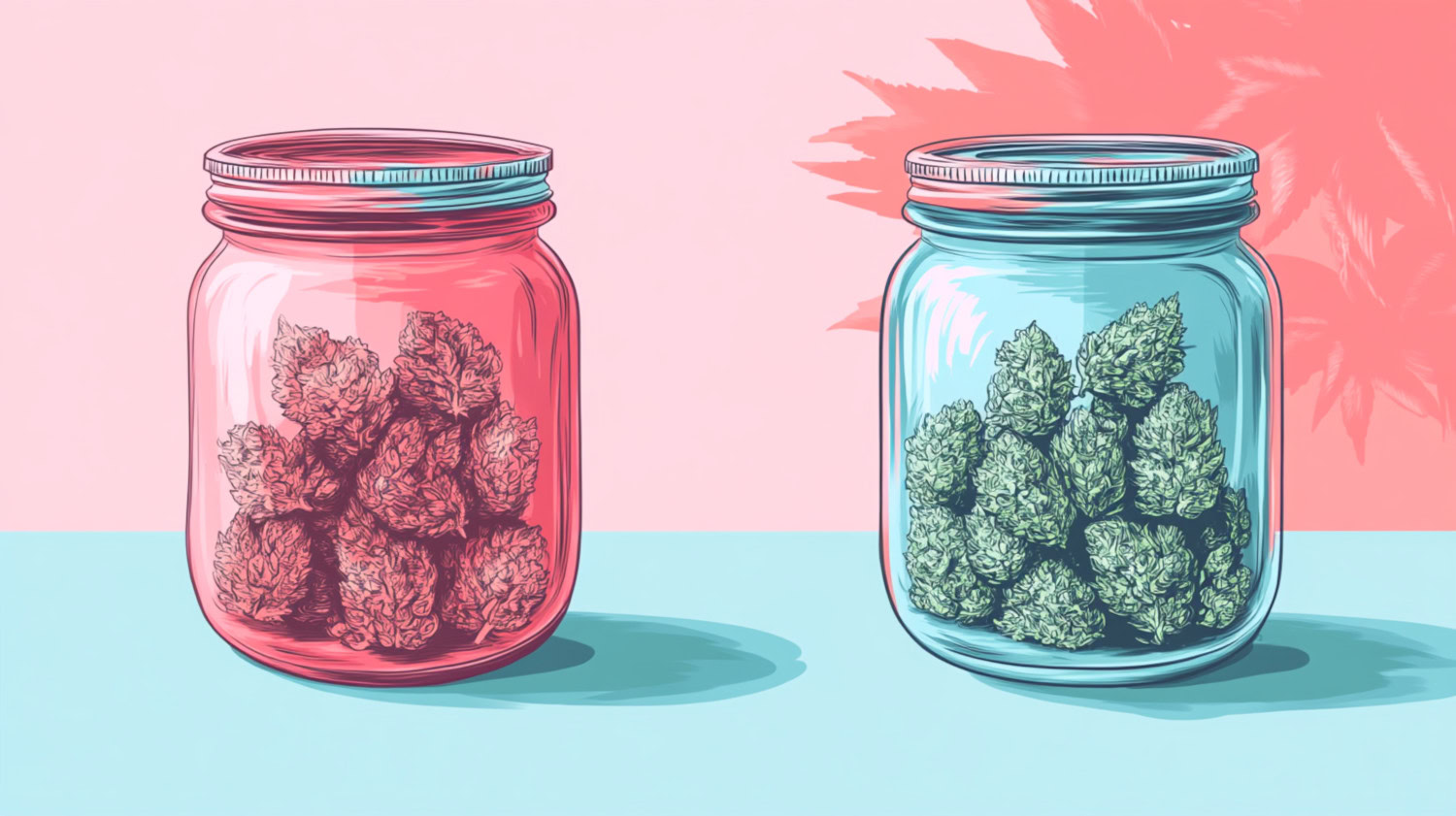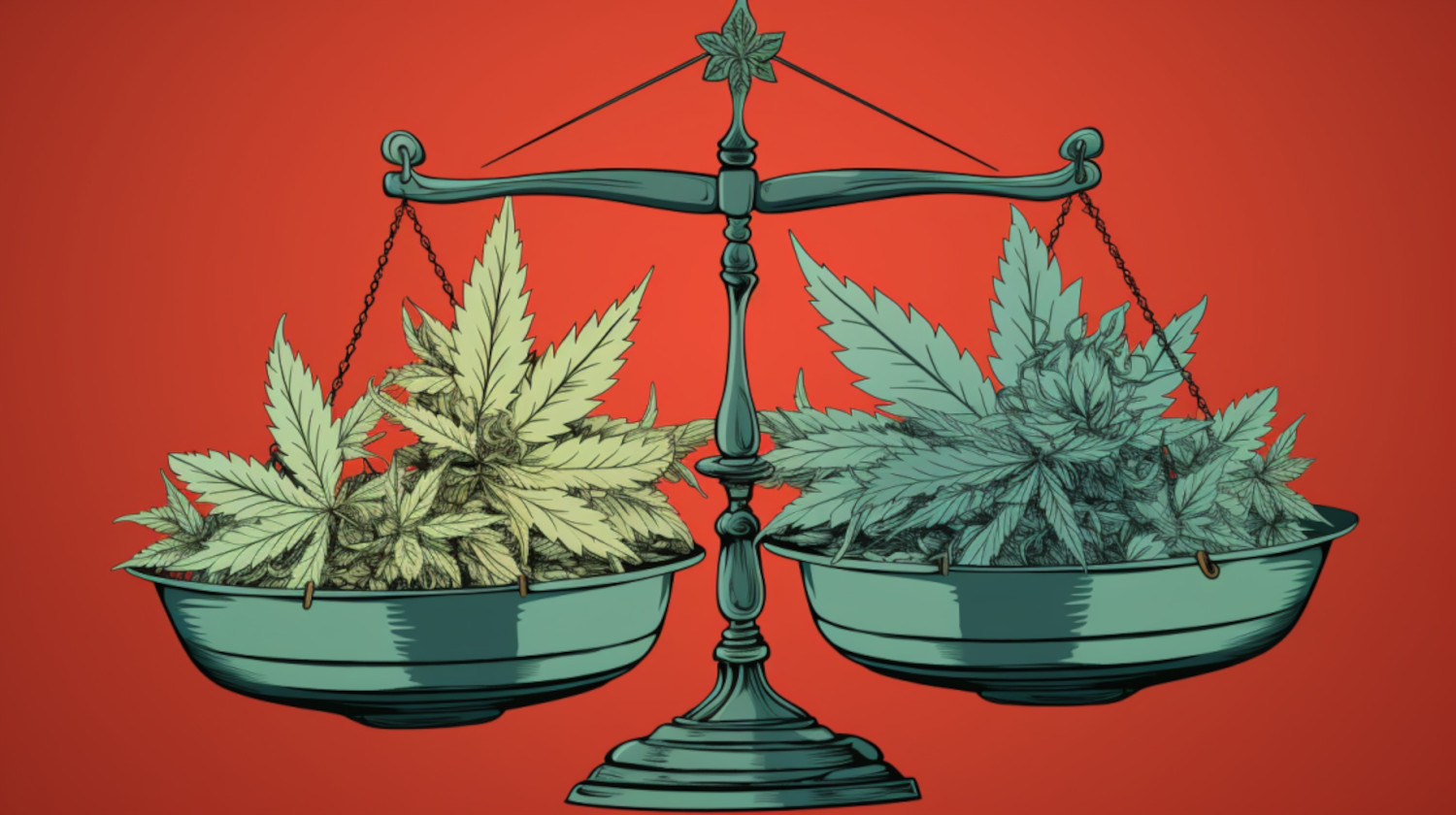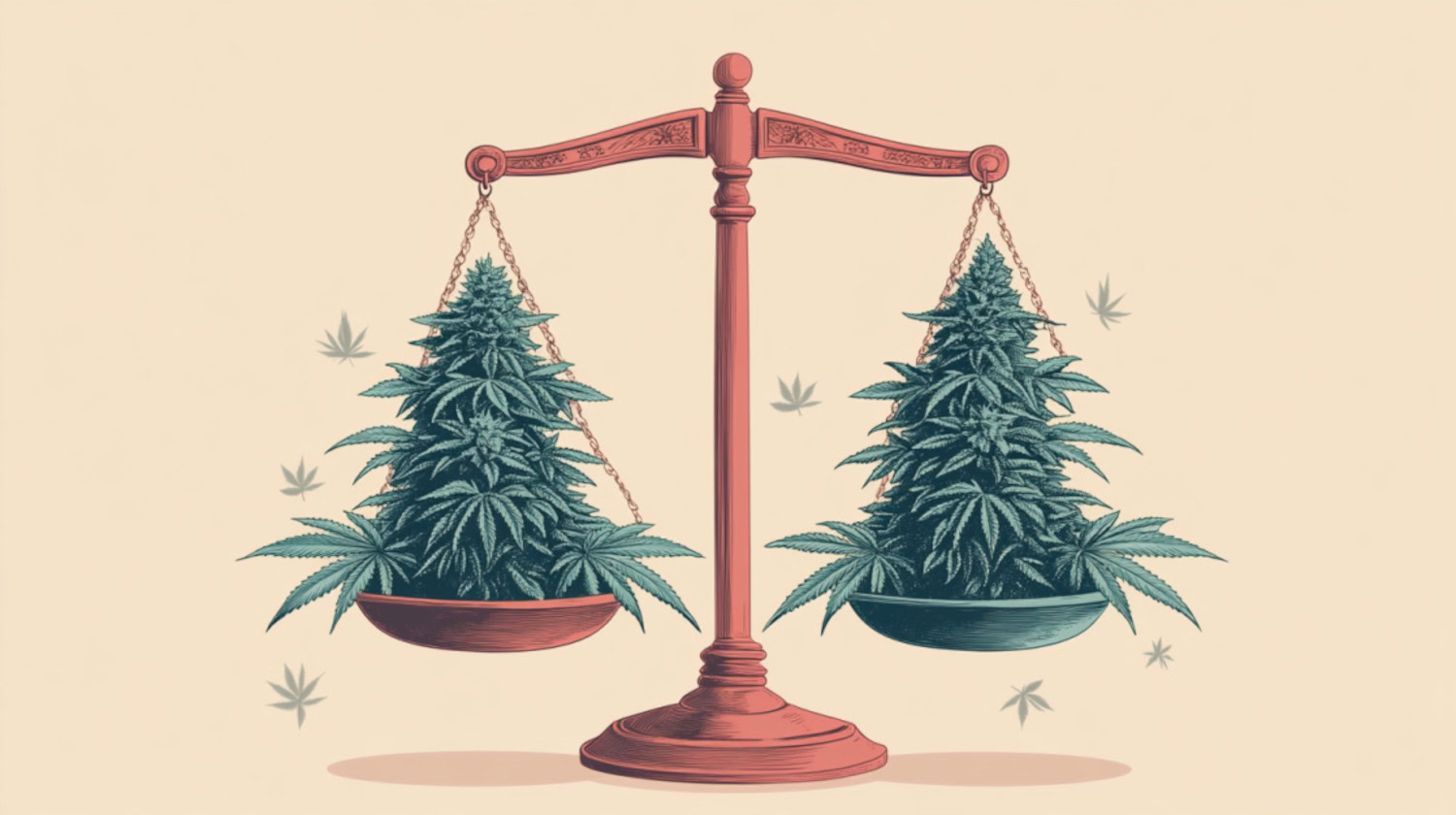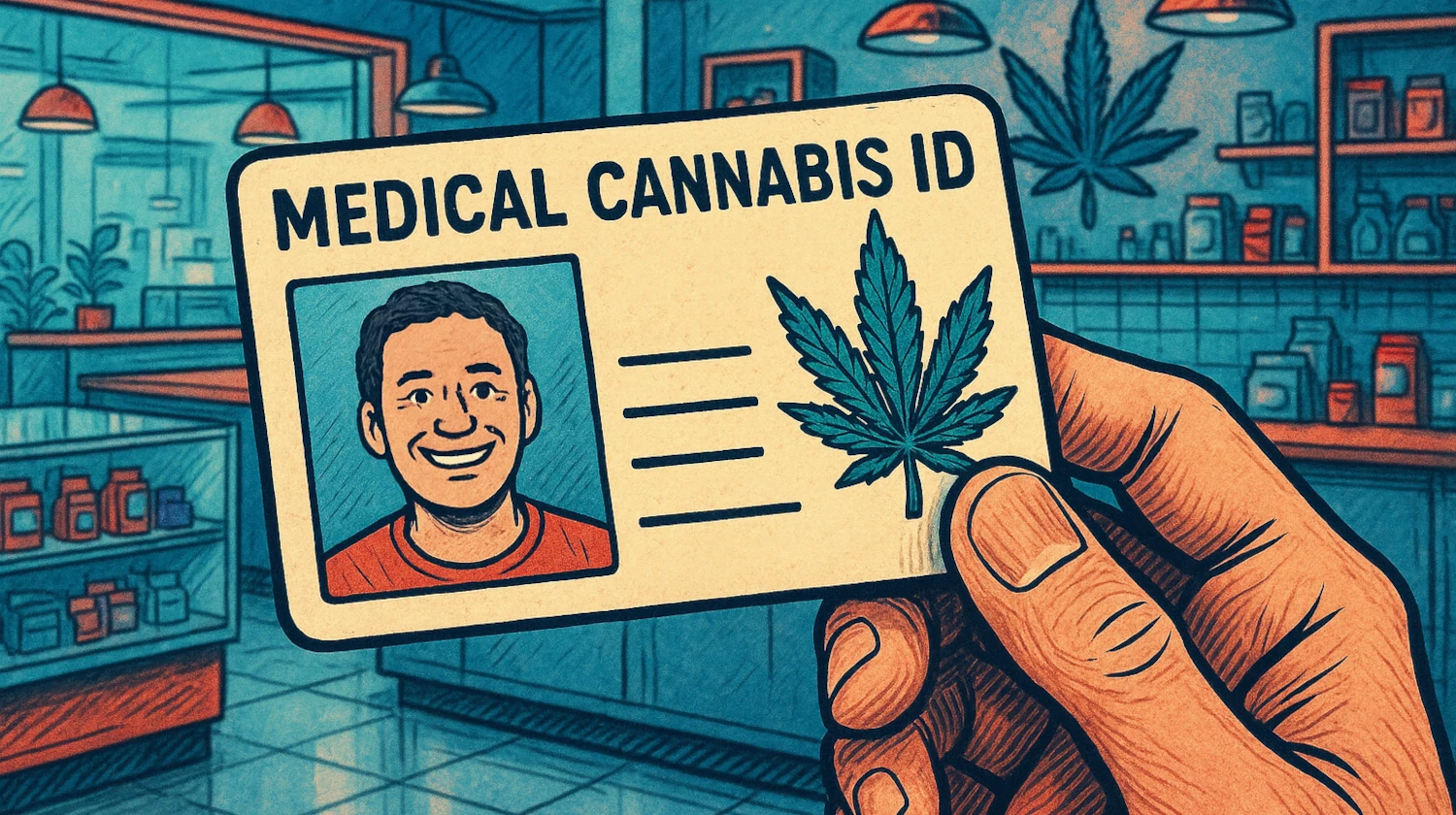In This Article
- The Main Difference Between Medical and Recreational Cannabis: The Purpose
- Differences in THC and CBD Concentrations and Limits
- Medical vs Recreational Weed: Legality
- Differences in Pricing and Taxes
- How Much Could a Medical Card Save You?
- Availability and Access to Medical and Recreational Cannabis
- References
Key Takeaways
- Medical and recreational cannabis are the same plant; the difference lies in the intent behind use.
- Medical patients use cannabis therapeutically, while recreational consumers use it for personal or non-medical purposes.
- There may be benefits to having a medical cannabis card, depending on your state, including cost savings and access to a wider range of products.
Legalizing cannabis in the United States has so far primarily occurred at the state level, leading to a unique set of regulations in each state. Some states have only legalized medical cannabis, while others have also legalized the plant recreationally. This varied approach to legalization may lead some to believe that there are inherent differences between medical and recreational cannabis.
However, there is generally little difference between medical vs recreational weed (i.e., the cannabis itself). The differences lie in the intent behind use and how they are regulated.
The Main Difference Between Medical and Recreational Cannabis: The Purpose
The primary difference between medical cannabis and recreational weed (often referred to as adult-use cannabis) lies in its intended use. A patient who uses cannabis as medication for a particular condition or who uses cannabis under the guidance of a healthcare provider may be considered a medical patient. An adult who uses the same cannabis to simply enjoy its effects is using recreational cannabis.
States that have legalized both medical and recreational cannabis often have different sets of rules for each. These are regulatory distinctions, however, and generally don’t reflect differences in product quality, though this can vary by provider.
Differences in THC and CBD Concentrations and Limits
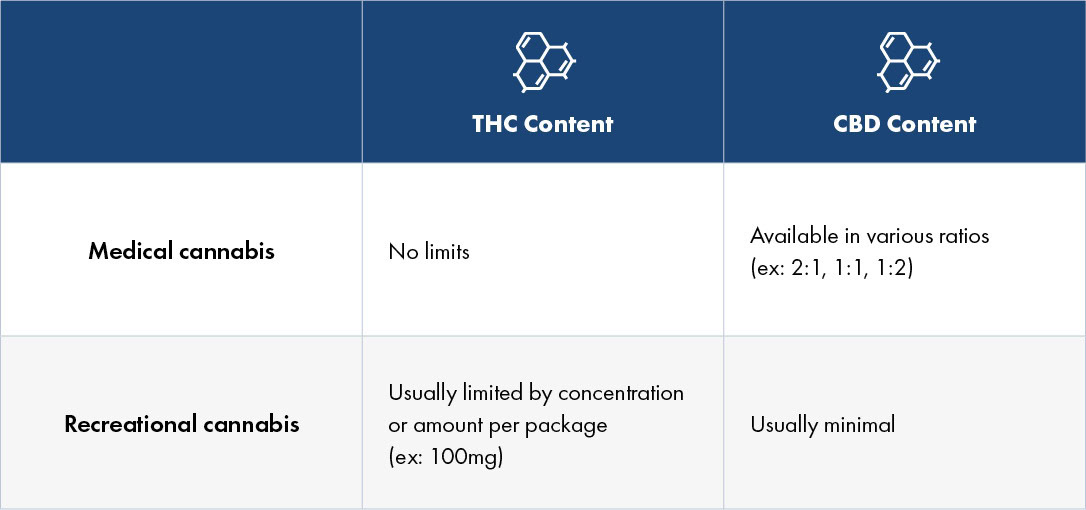
The products available to medical cannabis patients and recreational consumers can vary from state to state. In some states, the regulations allow medical cannabis products to contain higher levels of THC than products sold for recreational use.
Most states that have legalized recreational weed have limits on the amount of THC (in milligrams) in edibles and concentrates. Additionally, regulations for edibles often cap the dosage of THC per serving. By contrast, medical cannabis products are sometimes not subject to the same regulations, which may allow access to products with higher levels of THC, depending on the state.
Differences in the potency of cannabis flower sold for recreational or medical purposes are not significant. A team of researchers analyzed THC levels in recreational and medical cannabis from dispensaries across the United States and determined that their potency was roughly the same.1
Medical cannabis products will often have higher levels of CBD, including products with specific ratios of CBD to THC, such as 1:1, 2:1, 20:1, etc. Additionally, medical cannabis products sometimes contain minor cannabinoids such as CBN or CBG, which are being studied for potential therapeutic properties. By contrast, most recreational cannabis products prioritize THC content, which may appeal to certain consumers.
Regulations on the potency of medical and recreational cannabis products vary from one jurisdiction to another, so check the cannabis regulations in your area.
Medical vs Recreational Weed: Legality

As of June 2025, 41 states have legalized medical cannabis in a significant manner, while 24 have legalized recreational weed. Each state that has legalized cannabis has adopted its own rules and regulations to govern the production and use of the plant. Instead of a comprehensive medical cannabis program, several states have legalized low-THC therapies. For the most up-to-date information, check the cannabis laws in your state.
| Type | Legal States | Illegal, or low-THC program only |
| Medical Cannabis | Alabama, Alaska, Arizona, Arkansas, California, Colorado, Connecticut, Delaware, District of Columbia, Florida, Hawaii, Illinois, Iowa, Kentucky, Louisiana, Maine, Maryland, Massachusetts, Michigan, Minnesota, Mississippi, Missouri, Montana, Nebraska (no regulatory framework), Nevada, New Hampshire, New Jersey, New Mexico, New York, North Dakota, Ohio, Oklahoma, Oregon, Pennsylvania, Rhode Island, South Dakota, Texas, Utah, Vermont, Virginia, Washington, West Virginia | Georgia, Idaho, Indiana, Kansas, North Carolina, South Carolina, Tennessee, Wisconsin, Wyoming |
| Recreational Cannabis | Alaska, Arizona, California, Colorado, Connecticut, Delaware, District of Columbia (no rec sales allowed in D.C.), Illinois, Maine, Maryland, Massachusetts, Michigan, Minnesota, Missouri, Montana, Nevada, New Jersey, New Mexico, New York, Ohio, Oregon, Rhode Island, Vermont, Virginia (no rec sales), Washington | Alabama, Arkansas, Florida, Georgia, Hawaii, Idaho, Indiana, Iowa, Kansas, Kentucky, Louisiana, Mississippi, Nebraska, New Hampshire, North Carolina, North Dakota, Oklahoma, Pennsylvania, South Carolina, South Dakota, Tennessee, Texas, Utah, West Virginia, Wisconsin, Wyoming |
Under federal law, cannabis is an illegal drug listed under Schedule I of the Controlled Substances Act. While reforms to federal cannabis policy have been proposed, it is currently illegal to transport cannabis over state lines, and other prohibitions still apply.
Differences in Pricing and Taxes

Because each state’s cannabis market must be self-sustaining, the price of cannabis products can vary significantly from one jurisdiction to another. While prices of medical cannabis and recreational weed in states that have legalized both are generally similar, they have different tax structures in many states. Due to this, patients with a medical card can often achieve savings when visiting the dispensary, compared to recreational consumers.
The following table represents the base cost of products only and doesn’t account for tax savings that medical patients may receive. Check our breakdown of each state’s laws and regulations to learn more about how much you can save on taxes in your area.
| Product type | Medical | Recreational |
| Herbal cannabis (buds and flower) | $5-$20 per gram | $5-$20 per gram |
| Cannabis concentrates | $20-$60 per gram | $20-$120+ per gram |
| Edibles | $2-$5 per 5-10mg dose | $2-$3 per 5-10mg dose |
| Topicals | $25-$60 | $25-$60 |
| Tinctures | $15-$100+ depending on concentration | $15-$120+ depending on concentration |
| Vape cartridges | $15-$80 depending on amount and concentration | $15-$80 depending on amount and concentration |
How Much Could a Medical Card Save You?
Depending on your state, a medical card may provide access to lower taxes or pricing. Many states exempt medical purchases from cannabis taxes or have reduced rates compared to recreational purchases. Use our tool to help you determine how much money you can save
Availability and Access to Medical and Recreational Cannabis

At some dispensaries, patients with medical cards have access to a broader range of products, including higher-potency options in certain states. Medical cannabis patients may also be permitted access to more cannabis than recreational consumers.
In California, for example, adult-use cannabis consumers are limited to purchasing up to one ounce of cannabis per day. Medical patients with a doctor’s recommendation, however, can buy up to eight ounces of cannabis daily, according to California state regulations.
Additionally, many states have reciprocity programs that allow medical cardholders from other states to shop at dispensaries while visiting. Not all states have these reciprocity programs, but in those that do, medical cannabis patients can legally purchase cannabis, including in states where recreational cannabis has not yet been legalized.
Medical cannabis cards also provide patients with other benefits, including potential employment protections, depending on the state. If you don’t have a recommendation to use medical cannabis, it’s easy to schedule a consultation with a physician near you who specializes in medical cannabis. During your appointment, you’ll have the opportunity to ask questions and discuss whether medical cannabis might be considered as an option under your state’s program.
References
- Cash MC, Cunnane K, Fan C, Romero-Sandoval EA. Mapping cannabis potency in medical and recreational programs in the United States. Largent-Milnes T, ed. PLOS ONE. 2020;15(3):e0230167. doi:https://doi.org/10.1371/journal.pone.0230167 ↩︎
The information in this article and any included images or charts are for educational purposes only. This information is neither a substitute for, nor does it replace, professional legal advice or medical advice, diagnosis, or treatment. If you have any concerns or questions about laws, regulations, or your health, you should always consult with an attorney, physician or other licensed professional.

